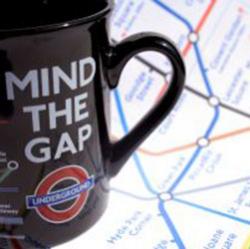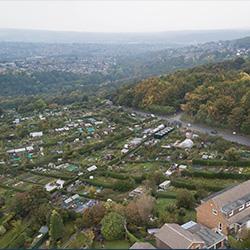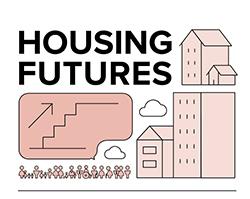Co-producing sustainable urban development
Sustainable urban development must take a more pro-active and systematic approach to include the perspectives of people who live and work in communities.
The Social Action & Research Foundation (SARF) has been working with the Centre for Sustainable Urban and Regional Futures (SURF) at the University of Salford Manchester and the Greater Manchester Low Carbon Hub on a project that explores how public knowledge can be more successfully absorbed into the policy-making process. As part of the Greater Manchester Platform the team have conducted research with a wide range of organisations to co-produce practical options that can make this happen at a Greater Manchester level. SARF have carried out three focus groups with 22 organisations in Manchester, Salford and Greater Manchester to bring community groups into the discussion about a more sustainable Greater Manchester.
If we are to move away from the damaging international economic model, which is rooted in the concept of infinite growth and consumption, and towards one that is social equitable and ecologically sustainable, it is imperative that we include the experiences, insights and knowledge of local communities. As things currently stand, many feel that the community is often seen as a problem that needs to be fixed, with an approach to developing public policy that limits involvement. This can often fail to recognise the social assets and knowledge that exist within our neighbourhoods. As the manager of a community centre in Salford said:
“You give people perfectly rational arguments and they are dismissed. It diminishes your intellect and understanding.... It must be because I do the reception and clean the toilets as well as manage it, [that they think] I won’t know what is going on it that community. But I do know.”
Complex social issues that have remained intractable over many years cannot be solved by Greater Manchester policy responses that are delivered by the statutory sector alone. Especially not ones that impose a particular type of intervention that neglects localised contexts; existing networks and patterns of behaviour in local communities affect how policies are implemented in communities, ultimately affecting their success. Therefore, we need to place inherent value in the knowledge that is held within communities and recognise the potential of local capacity to address deep-rooted issues.
There was consensus through the focus groups on the need to integrate social, economic and ecological thinking to deliver sustainable urban development. We had many discussions that focused on how Greater Manchester could grow the more sustainable sectors of the economy in the future – ideas that were articulated by people working on a daily basis in communities, who have the knowledge of how things work on a local level.
This included re-invigorating the potential of retrofitting homes. We need to deliver policy interventions that re-think and re-shape the ways in which energy flows into, through and out of buildings in the city.
If delivered in a way that integrates social, economic and ecological issues, works with private sector landlords and draws upon the experience of low-income households, insulating homes can help to ease the pressures on the cost of living for some of our poorest communities. For instance, targeting investment in areas with high levels of pre-payment electricity metres and working with people on the most appropriate interventions could transform people’s immediate lives and the contribute to significant reductions in the carbon emissions of Greater Manchester.
Beyond this, we require small-scale experiments that integrate social, economic and ecological issues, but these must not be forced upon communities. Rather, there needs to be the space to support and grow ideas from within neighbourhoods to ensure that there is local ownership. The Biospheric Foundation, situated in the Blackfriars area of Salford, provides an inspiring case where technological innovation has been combined with the knowledge and dedication of the local community through partnership with an active and innovative residents’ association in the Vertical Villages. This has created a hyper-local enterprise that aspires for social, economic and ecological solutions, existing outside the dominant model of economic growth that so often limits creativity or places value on little outside monetary gain.
Places cannot exist in a vacuum and we cannot expect Greater Manchester to abandon the existing economic model overnight, but there are many examples across Greater Manchester that point towards a potential future in which there is increased local production and distribution. These radical approaches need to be supported to grow into a robust economic alternative as part of the transition to a more sustainable future.
The Low Carbon Hub could act to connect networked good practice on sustainable urban development across Greater Manchester. How we turn such hyper-local approaches into large-scale solutions is a major challenge, and one we will be exploring further with all the partners involved in this project. One option centres on how the Low Carbon Hub could act to connect networked good practice on sustainable urban development across Greater Manchester. This would involve voluntary and community sector organisations being more informed and having improved access to policy-making and programme delivery, and in turn would involve a responsibility on them to share their knowledge and experiences.
It is important to provide the necessary space whereby alternative approaches can be nurtured within the local communities that they are rooted. But working with the public sector as partners is essential. We need a holistic model that treats all agents as equal partners in a more reciprocal relationship. Local government can support innovation and act to propagate the more successful interventions that exist by enabling the learning to grow into each locality and providing the resources, frameworks, advice and guidance they require to flourish.
This ensures a framework for sustainable urban development that can deliver social, ecological and economic advances in a way that creates cross-fertilisation between local experiments that are driven by people with local knowledge. Greater attention needs to be given to creativity and inspiration, linked to people’s everyday realities and knowledge, as a precondition for widespread cultural change.
Through this networked localism, it will be possible to create an ecosystem of sustainable enterprise across Greater Manchester. Once this develops, who knows what the future will hold?
Find out more about the project
This article was written by Daniel Silver and Amina Lone for Platform, an online news source and information portal for sharing knowledge and intelligence on sustainability and has been developed as a part of the O-Zone project.
Photo: Image of EMERGE learning garden courtesy of Lucy Danger, Emerge Recycling/Fare Share North West







